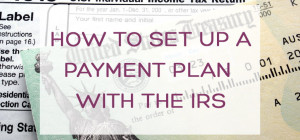 You've got a business and as a responsible business owner you understand that you have a duty to government and country to pay your share of taxes. It's been like that forever, and will continue to be so. But what kinds of taxes should you be contributing, and how can you properly plan for these financial obligations? Here's a list of UK business taxes you should be aware of, and how you can properly plan for them.
You've got a business and as a responsible business owner you understand that you have a duty to government and country to pay your share of taxes. It's been like that forever, and will continue to be so. But what kinds of taxes should you be contributing, and how can you properly plan for these financial obligations? Here's a list of UK business taxes you should be aware of, and how you can properly plan for them.
Business taxes defined
In its simplest of terms, a business tax is levied on the profit derived by a business - meaning, when you engage in an enterprise with the purpose of making money. Selling off a second-hand car because you no longer need it or because you think it is time to get a new car does not qualify you for business tax, for instance. However, if you buy something and then resell it with the purpose of making a profit, then you are engaged in a business venture and your profit will therefore be taxable.
All businesses have to pay business taxes - the kind of business taxation, and their respective rates, depend on the kind of business you are engaged in.
The kinds of business taxes
There are many kinds of business taxation, and some of them may not seem so obvious. The simplest kind is the business tax imposed on profit, paid at the end of the fiscal year. This can be self-assessed (if you are self-employed) or can be in the form of corporation tax (if you are a corporation, with current rate at 20% of annual profit).
However, there are other forms of business taxes as well. For instance, National Insurance is also a form of business tax because the government is requiring your contribution depending on the number of employees you hire. This is true whether you are self-employed, employed, or have a corporation.
Other forms of business taxes include VAT (Value Added Tax), stamp duty land tax, and other specific taxes (such as environmental taxation) depending on what kind of business you are in.
The importance of business tax planning
The laws of the land are there to progress society - but they can also benefit the business because there are many instances in which a business can take advantage of various taxation laws. Business tax planning is based on understanding those laws and taking advantage of them, usually to minimise the financial burden at the end of the fiscal year.
It starts with accurate record keeping, which then lets you take a long-term view and take full advantage of tax allowances or reliefs. It's always recommended that you seek professional advice for proper corporate tax planning so you can get the full benefits in the end.







